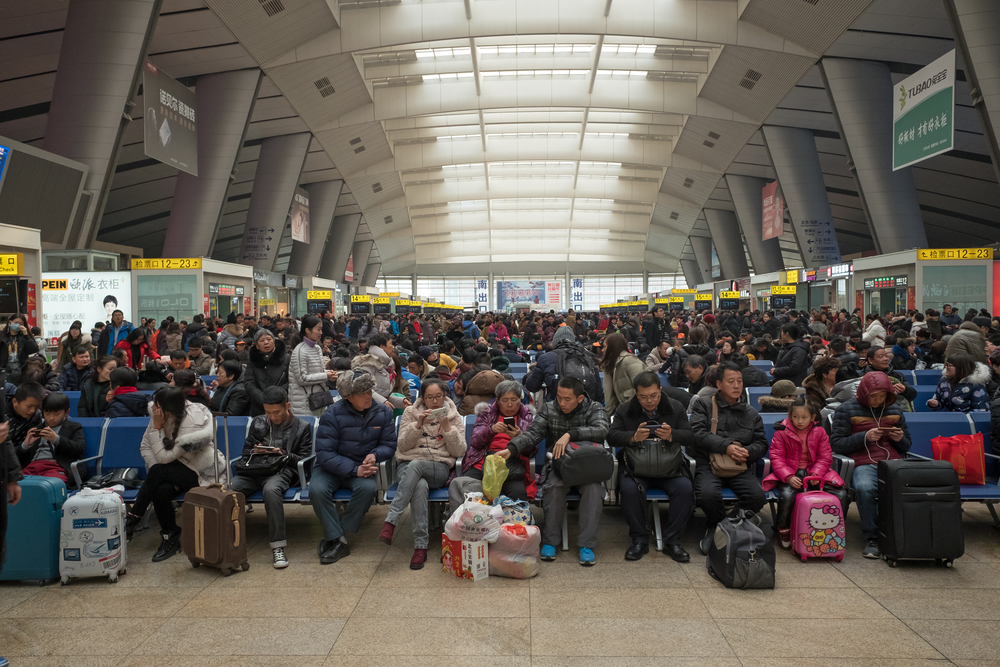Western companies go east: Overcoming the Great Firewall of China
Contributors are not employed, compensated or governed by TDM, opinions and statements are from the contributor directly

China’s population of 1.4 billion has attracted companies from all over the world. The Asian country opens vast growth opportunities. However, travel tech companies must first overcome the Great Firewall of China.
The huge volume of Chinese outbound tourists attracts a number of western travel companies who want to dip their hands in the luxurious Chinese market.
Many western travel companies are going east by either purchasing, entering into a business venture or strategic partnership with their Chinese counterparts. China is rapidly becoming one of the most important tourism markets in the world.
According to the China Tourism Academy, the number of Chinese tourists that travelled abroad rose by 7% to 130 million in 2017. And these tourists are also biggest spenders when travelling overseas, they shopped for approximately USD 115.3 billion last year. With this jaw-dropping number, experts would say, if you get China, you get Asia.

However, China is not an easy country to get into. The Great Firewall of China (GFW) is the coined term for the different legislative actions and technologies enforced by the People’s Republic of China to regulate internet in the country.
The main role of GFW is internet censorship that blocks access to selected foreign websites and slows down cross-border internet traffic. The Great Firewall is the main reason why there is no Google and Facebook in China. This is because the country requires internet tools and mobile apps to adapt to domestic regulations. GFW also, in a way, fosters the development of Chinese internet companies as they create similar platforms offering the same services as the banned websites.
Penetrating GFW
The Great Firewall was in full effect since 2011 preventing IP addresses to be routed through and blocking Virtual Private Network (VPN) services. The Great Firewall was able to “learn, discover and block” the encrypted communications methods used by a number of different VPN systems.
During his talk at the Techsauce Global Summit last week, Bob Zheng, founder and CEO of People Squared – a Shanghai-based co-working space that provides a well-equipped work environment for freelancers, shared what the Firewall does for China and how start-ups and big companies can overcome the intimidating internet filter.

“Because of this firewall, there are actually a lot of new opportunities being created. So there is ‘almost’ an equivalent of anything in China.
“So, with Google, we have Baidu, which is also a search engine in local language allowing people to search for anything. There’s also a Twitter equivalent Sina Weibo. So, that actually created a lot of opportunities just within those time period to allow some local companies to grow,” Zheng said.
He said that many companies have tried and failed in trying to gain business in China. The average success rate of foreign start-ups in the country is 5%.
Then, Zheng shared the secret: “You need to look around and understand the market in a local way.”
It seems that one of the biggest mistakes of multinational companies is their lack of knowledge of the Chinese culture. He said that companies in Hong Kong and Taiwan may have the advantage for they are quite familiar with the market.
“You need to understand the market itself in China, the user behaviour in China, the way people monetise in China are actually very different,” Zheng said.
“Be specific on who are your users. There is nothing wrong in focusing on a niche, for the market is too big and 1% in China is huge.”
Zheng said that China is a rapidly changing market and what worked a year ago may not work now. Moreover, China has moved on from being a manufacturing country to being innovative and China has become the biggest app market.
Therefore, it is best to immerse yourself and know the locals and find the strategies that work for you and not because everybody else is doing it.
He also said that it is important to know your target. “Be specific on who are your users. There is nothing wrong in focusing on a niche, for the market is too big and 1% in China is huge,” he said.
Reap the benefits
While it is difficult to get inside the Chinese market, the rewards are huge in terms of profit. Start-up companies are not the only ones chasing the Chinese travellers. A number of big names in the travel industry are dipping their hands in the treasure trove.
Marriott International signed a joint venture with China’s tech giant Alibaba. The strategic partnership allows Marriott to penetrate China and for Alibaba to expand its products, Fliggy and Alipay.
Following the joint venture, Marriott and Alibaba announced that they created an exclusive booking platform for Marriott’s properties in Asia and the Pacific. Also, Alipay is accepted in all Marriott hotels in China. The hotel giant plans to expand this service globally to accommodate Chinese travellers abroad.
Marriott is not the first hotel to dive into the Chinese market, AccorHotels paired up with Ctrip too.
Even airline companies are seeking strategic partnerships with Chinese firms as the Civil Aviation Administration of China (CAAC) relaxes the rules that would allow state and private firms to independently or jointly make investments in the industry.

“Chinese tourists are the most powerful single source of change in the tourism industry.” Taleb Rifai, secretary general of the World Tourism Organisation (UNWTO), said.
“Not only is it the biggest domestic market in the world, where 4.4 billion trips are made each year, but it’s also the leading global outbound market, with over 135 million international departures in 2016. This number has been increasing in double digits since 2010 and it’s merely the tip of the iceberg. The potential of the Chinese market is far greater because only 6% of Chinese people own a passport. So we expect 200 million Chinese to travel abroad in just a few years’ time,” he added.


Comments are closed.